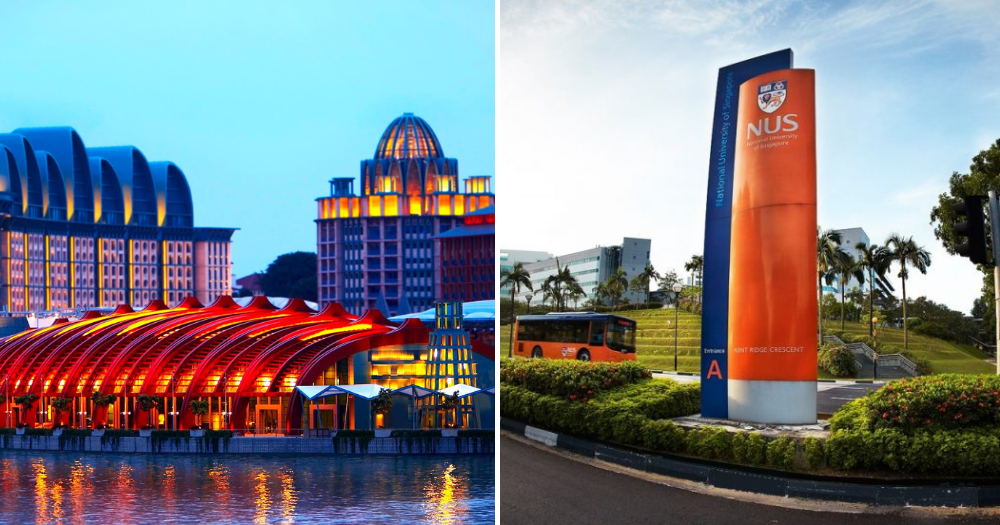Follow us on Telegram for the latest updates: https://t.me/mothershipsg
Resorts World Sentosa (RWS) and National University of Singapore (NUS) have jointly set up a research facility to strengthen sustainable tourism in Singapore.
The RWS-NUS Living Laboratory is the result of this academic-industry partnership, and is the single largest one which will focus on biodiversity and energy conservation.
The partnership will contribute directly to the tourism economy, environmental education and sustainability efforts in Singapore’s ESG (Environmental, Social & Governance) development.
Combining research capabilities
The five-year research partnership was launched on Jan. 5 at Equarius Hotel at Sentosa.
S$10 million in funding was committed to supporting the Living Laboratory and its research by RWS.
The research will hopefully make "impactful contributions" towards the Singapore Green Plan 2030, as well as support Sentosa Development Corporation’s plans to turn the resort island into a carbon-neutral destination by 2030.
The facility will concentrate on two specific research areas.
1) Biodiversity Conservation and Education
The marine biodiversity conservation project will utilise NUS’ research capabilities in marine science and the S.E.A. Aquarium's — soon-to-be known as the Singapore Oceanarium’s (SGO) — public education and outreach to enhance biodiversity conservation in and around the Southern Islands.
Some key initiatives that the Living Laboratory will focus on include programmes to restore populations of threatened marine species, looking into the impact of nature experiences on human health and wellbeing, and exploring how activities of Dolphin Island can contribute to conservation and public education.
The Living Laboratory will thus act as a "knowledge platform" for marine science outreach and education, with the aim of positioning Singapore and the SGO as a "thriving hub" for marine conservation.
2) Decarbonisation and Nature-based Solutions.
The Decarbonisation and Nature-based Solutions project aims to address environmental issues, climate change and complex urban challenges through NUS' engineering capabilities and RWS' expertise.
The solutions will be developed across various domains including energy, water and waste.
Travellers prioritising sustainability
The collaboration capitalises on RWS as the leading leisure and tourism destination in Asia, and NUS as a leading academic and research institution "with rich and interdisciplinary capabilities in areas such as marine science, conservation and sustainability".
RWS has been extensively involved in sustainability efforts.
Previously, it built an award-winning District Cooling Plant which supplies chilled water for air conditioning across the resort and the entire Sentosa island. It also built one of the largest solar panel installations in Singapore, installed a rainwater harvesting system, and has "extensive" green roofs and walls on its buildings.
RWS CEO Tan Hee Teck said:
"The RWS-NUS Living Laboratory underscores our resolute commitment to make RWS a sustainable destination for Singaporeans and travellers. At the same time, the partnership will set the foundation for RWS to meet emerging trends where consumers are prioritising sustainability and unique engaging experiences when they travel."
NUS President, Tan Eng Chye, added that sustainability is a key priority for the university, with over 20 research centres across the campus working on integrative sustainability solutions.
Related stories
Top photo from RWS and NUS
If you like what you read, follow us on Facebook, Instagram, Twitter and Telegram to get the latest updates.

